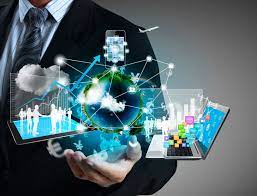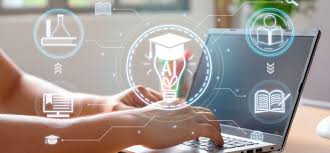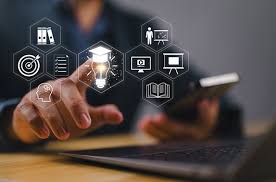Education has always been one of the cornerstones of societal progress, shaping the minds of future generations and fueling innovation, growth, and social development. Over the years, education has evolved from a rigid and one-dimensional process to a more dynamic, inclusive, and personalized experience, ensuring that each individual has access to the knowledge and skills they need to succeed in life. The role of education is not only to impart knowledge but also to encourage critical thinking, creativity, and personal growth.
In this article, we will explore the various aspects of education, from its historical context to modern advancements in learning, including the integration of technology and new teaching methodologies. We will also dive into the importance of education for individuals and society, discuss the challenges that education systems face, and offer insights on how learning can be optimized to achieve better outcomes. Whether you’re a student, educator, or parent, understanding the intricacies of education and learning can help empower individuals to unlock their potential.
The Role of Education in Society
At its core, education serves several critical functions in society. It prepares individuals to become active, informed, and responsible citizens while contributing to personal and professional development. Here are the key roles education plays in society:
- Fostering Personal Growth and Development
Education helps individuals develop their cognitive, emotional, and social skills. From early childhood education to higher education, learning provides individuals with the tools to think critically, solve problems, and communicate effectively. It helps build self-confidence, encourages creativity, and promotes lifelong learning. These qualities empower individuals to navigate the complexities of the modern world and lead fulfilling lives. - Economic and Workforce Development
Education is directly linked to economic growth and workforce development. A well-educated workforce drives innovation, increases productivity, and strengthens economies. For individuals, education is often the key to securing better job opportunities, improving earning potential, and advancing in their careers. Vocational and technical education also plays an essential role in providing the skills needed for specific trades and industries. - Promoting Social Mobility and Equality
Education is a powerful tool for social mobility. It provides individuals from all walks of life with the opportunity to improve their circumstances, regardless of their socioeconomic background. By offering access to education, societies can reduce inequalities and empower marginalized groups to achieve success. Additionally, education fosters a sense of social responsibility and helps individuals become more empathetic and understanding of others’ perspectives. - Building a Knowledgeable and Informed Society
A well-educated populace is essential for maintaining a democratic society. Education encourages individuals to think critically about social issues, make informed decisions, and participate actively in civic life. It provides the knowledge necessary to understand complex political, environmental, and economic systems, helping citizens make informed choices about their lives and their communities.
The Evolution of Education: From Traditional to Modern Learning
The concept of education has evolved significantly over the centuries. From ancient civilizations to the present day, methods of teaching and learning have adapted to the changing needs of society. Let’s take a look at how education has evolved:
- Ancient Education Systems
In ancient times, education was typically reserved for the elite. Ancient civilizations, such as Egypt, Greece, and China, established early education systems that focused on teaching important skills and knowledge related to governance, philosophy, and the arts. For example, in Ancient Greece, philosophers like Socrates, Plato, and Aristotle contributed to educational philosophy, emphasizing reasoning, ethics, and rhetoric. Similarly, Confucius in China advocated for the cultivation of virtue and wisdom through education. - The Rise of Formalized Schooling
In medieval Europe, the rise of the Church played a central role in education, with religious institutions being the primary centers of learning. Monasteries and universities were established to educate clergy, and later, laypeople. By the 18th century, the concept of public education began to take shape, particularly in Europe and the United States, where the idea that every child should receive an education started to gain traction. - Industrial Revolution and Mass Education
The Industrial Revolution brought about major societal and economic changes that led to a shift in education systems. As industries grew, there was an increasing demand for workers with specific skills. This led to the establishment of public schooling systems and the expansion of higher education institutions. The focus shifted toward more practical skills, such as reading, writing, arithmetic, and technical training. - Modern Education and Technology
Today, education systems around the world have moved beyond traditional classroom-based learning. The integration of technology in the classroom, the rise of online education, and the proliferation of digital tools have transformed how knowledge is delivered and accessed. Digital platforms and educational software provide personalized learning experiences, allowing students to learn at their own pace and in ways that suit their individual learning styles. The shift toward remote learning, particularly accelerated by the COVID-19 pandemic, has also highlighted the importance of technology in education. Virtual classrooms, online collaboration tools, and interactive learning environments are now commonplace, providing students with new opportunities to engage with their learning material and instructors.
Key Aspects of Education and Learning
Education and learning are dynamic processes that require a comprehensive approach to achieve optimal outcomes. Key aspects include:
- Curriculum Development
A well-structured curriculum forms the foundation of education. It outlines the subjects, learning objectives, and skills that students need to master. Curriculum development involves a deep understanding of the subject matter, educational philosophy, and the needs of the students. It should also reflect societal changes, technological advancements, and global trends to remain relevant. - Teaching Methods and Pedagogy
Effective teaching strategies are vital in ensuring that students grasp complex concepts and acquire necessary skills. Traditional methods such as lectures and textbooks are increasingly being complemented by interactive and student-centered approaches, such as project-based learning, flipped classrooms, and collaborative learning. These methods encourage critical thinking, problem-solving, and creativity. - Assessment and Evaluation
Assessments are an essential tool for measuring student progress and learning outcomes. While traditional methods of assessment, such as exams and quizzes, are still common, modern education systems are increasingly incorporating formative assessments, peer reviews, and project-based evaluations. These methods provide a more holistic view of a student’s abilities and foster a deeper understanding of the material. - Lifelong Learning
The concept of lifelong learning emphasizes the importance of continuous education throughout one’s life. In today’s rapidly changing world, individuals must continuously update their skills and knowledge to stay competitive. Lifelong learning is facilitated by online courses, workshops, and professional development programs that allow individuals to acquire new skills, improve their existing ones, and stay informed about the latest trends in their fields. - Inclusive Education
Inclusive education ensures that all learners, regardless of their background, abilities, or needs, have access to quality education. This approach fosters diversity and equality, allowing students from different walks of life to learn together. It also involves providing support for students with disabilities, language barriers, or other learning challenges to ensure they can thrive in an academic environment.
Challenges Facing Education Systems
While education has come a long way, there are still significant challenges that need to be addressed in order to ensure that every individual has access to high-quality education. Some of the key challenges include:
- Access to Education
In many parts of the world, access to education remains a significant issue. Socioeconomic disparities, geographic location, gender inequality, and cultural norms can all limit access to education. This has led to significant gaps in educational attainment, particularly in developing countries. - Quality of Education
Even in countries where education is accessible, the quality of education can vary significantly. Factors such as outdated curricula, lack of trained teachers, inadequate resources, and overcrowded classrooms can all affect the quality of learning. Addressing these issues is crucial for ensuring that students receive the best possible education. - Technological Integration
The rapid pace of technological advancements presents both opportunities and challenges for education systems. While technology can enhance learning, there is still a lack of access to digital tools and resources in many regions. Additionally, educators must be trained to effectively integrate technology into their teaching methods. - Cultural and Social Barriers
Cultural attitudes toward education, particularly for marginalized groups such as girls, ethnic minorities, and children with disabilities, can hinder educational opportunities. Overcoming these barriers requires cultural sensitivity, advocacy, and policies that promote inclusivity and diversity in education. - Economic Constraints
The rising cost of education, particularly at the tertiary level, poses a barrier for many students, limiting their access to quality learning. Financial constraints can prevent talented individuals from pursuing higher education, leading to missed opportunities for personal and societal growth.
7 Frequently Asked Questions (FAQs)
1. Why is education important?
Education is crucial for personal development, social mobility, and economic growth. It empowers individuals with the knowledge and skills they need to succeed in life and contribute to society. Education also fosters critical thinking, creativity, and a deeper understanding of the world.
2. How has technology impacted education?
Technology has transformed education by providing new tools for learning and teaching. Online platforms, digital resources, and interactive tools have made education more accessible, personalized, and flexible. Technology has also facilitated remote learning and virtual classrooms, enabling students from all over the world to access high-quality education.
3. What is lifelong learning?
Lifelong learning refers to the continuous development of knowledge and skills throughout an individual’s life. It includes formal education, as well as informal learning through workshops, online courses, and self-study. Lifelong learning helps individuals adapt to changing job markets and stay competitive in their fields.
4. What is inclusive education?
Inclusive education is an approach that ensures all students, regardless of their background, abilities, or needs, have access to quality education. It fosters diversity and equality, providing support for students with disabilities or learning challenges to help them succeed.
5. What are the challenges facing education systems today?
Some of the key challenges include access to education, ensuring the quality of education, integrating technology effectively, overcoming cultural and social barriers, and addressing the rising cost of education.
6. How can educators improve student engagement?
Educators can improve student engagement by using interactive teaching methods, fostering a collaborative classroom environment, and incorporating technology into lessons. Encouraging active participation and providing real-world applications of concepts can also help students connect with the material.
7. What are the benefits of online learning?
Online learning offers flexibility, accessibility, and convenience. Students can learn at their own pace, access resources from anywhere, and often choose from a wider range of courses. It also allows learners to balance their education with work and other commitments.
Conclusion
Education is a powerful tool that shapes the future of individuals and societies. From its role in personal development to its impact on economic growth, education is essential for creating a better world. The evolution of educational systems, particularly through the integration of technology, has transformed the way we learn and teach. However, challenges such as access to education, quality of teaching, and social inequality persist, requiring ongoing efforts from educators, policymakers, and communities.
As we look toward the future, empowering minds through education and learning will continue to be the key to unlocking success and fostering a more equitable, prosperous world. It is essential to embrace innovation, inclusivity, and lifelong learning to ensure that everyone has the opportunity to reach their full potential.
Key Takeaways
- Education is essential for personal growth, economic development, and social mobility.
- Technological advancements have revolutionized education, making it more accessible and personalized.
- Lifelong learning is crucial for adapting to a rapidly changing world.
- Inclusive education ensures equal opportunities for all learners, regardless of their background or abilities.
- Despite progress, challenges such as access to education, quality, and affordability must be addressed for a better future.





